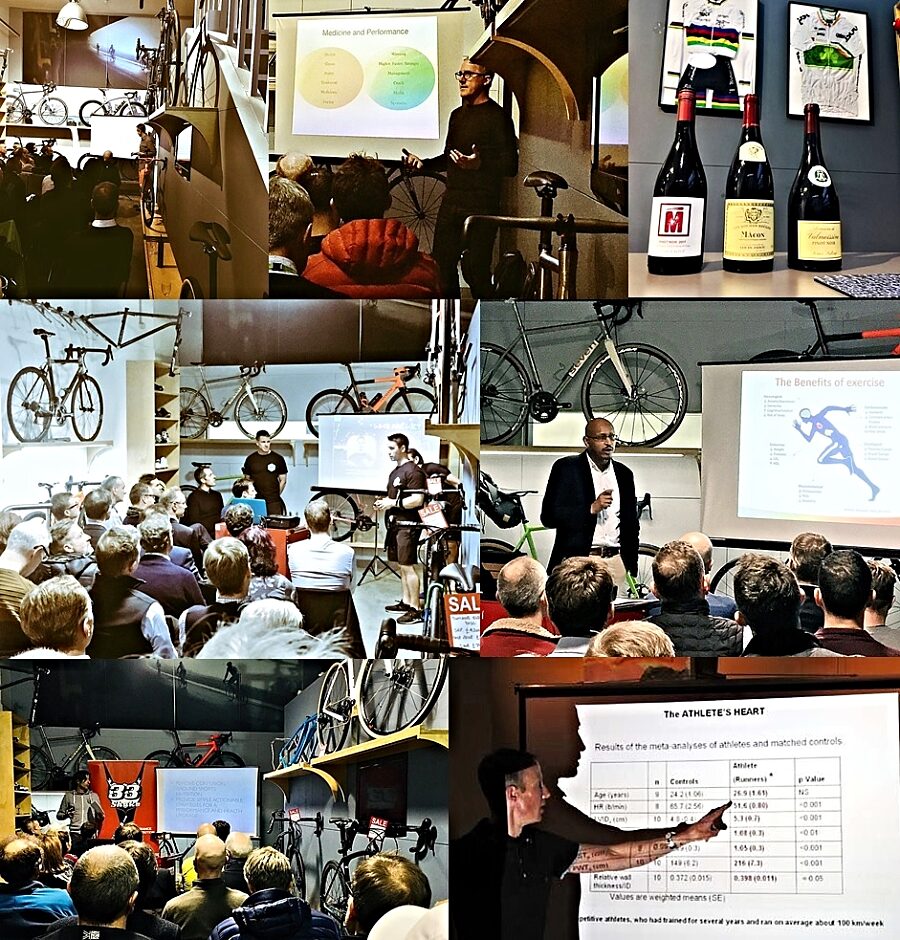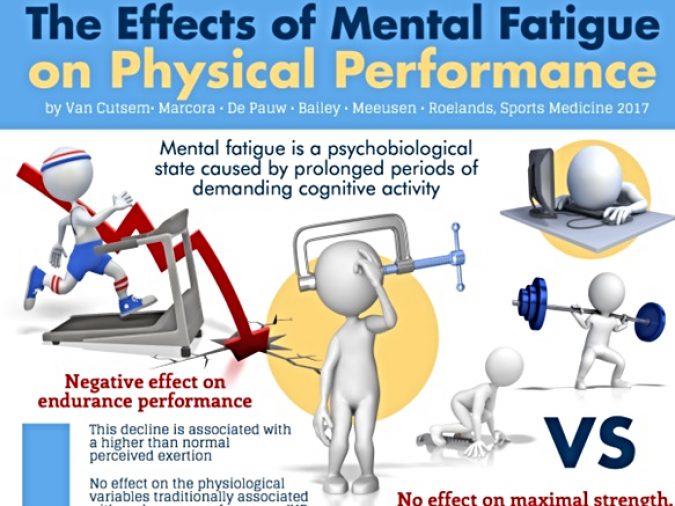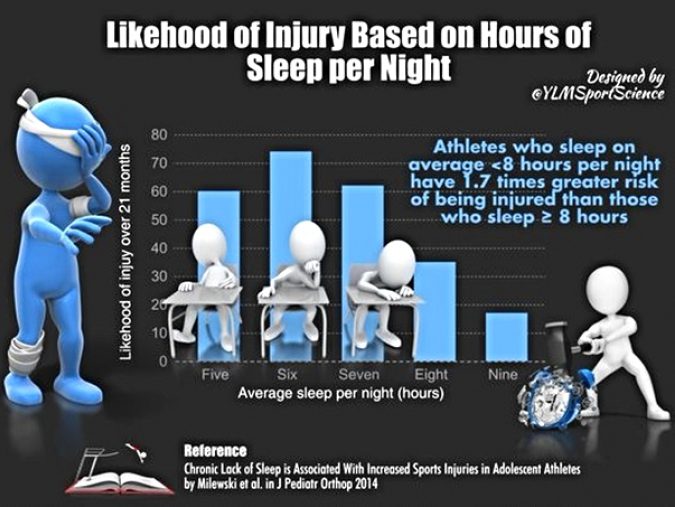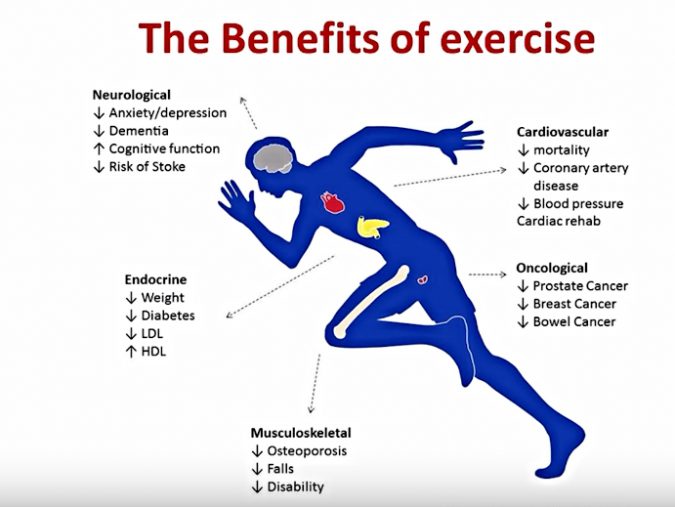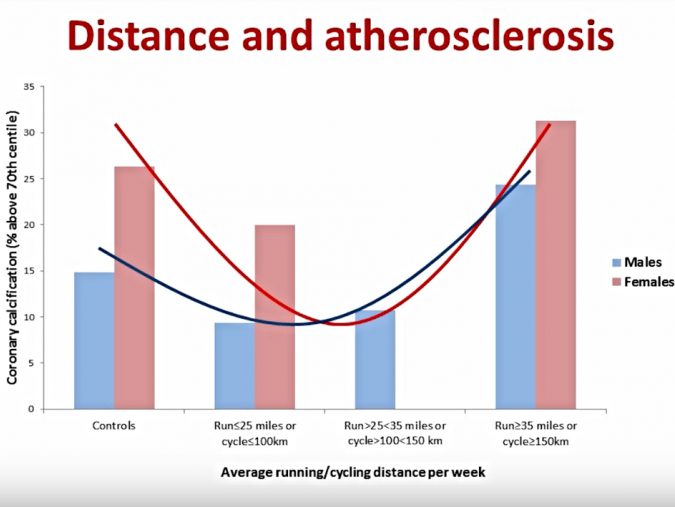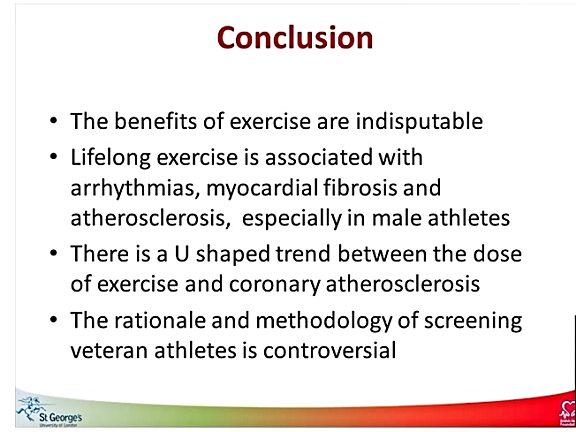The Midlife Lecture Series
The central theme of the Midlife Lecture Series, was to recognise that we are the first cohort to try and pursue performance, into and beyond middle-age, in sufficient numbers to be statistically significant. We wanted to curate a mixture of extremely high level speakers, who could add to the debate from diverse fields - cardiologists, team doctor, vascular surgeon, lectures in osteopathy etc. Here we will highlight some of the points that each of the speakers has made so far. We still have two speakers to look forward to - Alex Fugallo (March 6th) and Professor Robert Hinchliffe - 20th March. We will also be adding a lecture by Cyclefit Podiatrist, Mick Habgood - "One foot in the grave - how the cyclist's foot changes over time" - to be scheduled for April
Dr Nigel Stephens, Consultant Cardiologist - Will I Die? 16.11.17
This is Nigel's third lecture for us - two at Cyclefit and one at 2012 International Cyclefit Symposium. As well as being a Consultant Cardiologist, Nigel is also European Pursuit Champion. At the age of 56 Nigel is one of the fittest midlife athletes on the planet. Here are some of the highlights of his fascinating lecture.
- Ride hard into and beyond middle age because you enjoy it. Not because you think it is good for you.
- As a corollary to the above - moderate exercise is unambiguously good for you. No scientist in the world disagrees with that universal truth.
- Nigel splits mid-life cyclist into two cohorts - those who have always undertaken high-level cyclists and those who are starting again or starting for the first time – Nigel 'seeks trouble less' in the former because they are protected by a lifetime of high-level exercise.
- The subject of high-level exercise into middle-age is sensationally and highly proselytised in the mainstream media
- There is an inverse relationship between peaking fitness and immune function
- Dr Dan Tunstall Pedoe - "father of marathon medicine" - a cardiologist who developed pioneering methods of diagnosis - particularly his support of the London Marathon. Dr Dan recorded 1 in 67,000 participant deaths over 5 years running London marathon – doesn’t make it dangerous - he pointed out that number is probably the same in society for the same number for the same period of time.
- Coronery calcium score is rarely ‘normal’ in 50’s/60’s – does this go up with exercise?
- Calcification is off a different nature in high-level middle-aged athletes – hyper-dense and not prone to rupture – is exercise therefore like a statin?
- Recovery from heart-attacks is much better with high-level cyclists – Nigel is seeing this over and over again.
- Ventricle worry – more concerning according to Nigel – live issue – distended right ventricle post-exercise – causing right ventricle arrhythmia
Never miss the opportunity to hear Nigel lecture - he is one of the most gifted orators we have ever hosted - that includes 4 x International Cyclefit Symposiums
Dr David Hulse (Sports Physician - A Brief History of Cycling Doctors and Optimising Cycling Performance with Good Medicine - 5/12/17
Dave is a formidable combination of knee-surgeon, sports physician and ex World Tour Team Doctor! he is also one of the most empathic doctors you will ever meet, an avid cyclist and long term Cyclefit collaborator. Here are Dr Dave's Top 5:
- Avoid Illness! - 2012 London Olympiads advised to not shake hands!
• Hydration
• Food hygeine
• Hand washing
• Door handles
• Human contact
• Pro cyclists always wear socks - acute cooling of feet can cause the onset of common colds (Johnson & Eccles) - Define your cycling purpose and use your energy wisely - Dr Dave quotes Dr Aki Hintsa -
"Start by asking yourself 3 questions: do you know who you are, do you know what you want, and are you in control of your life?" - Time is limited in the real world - so less is often more, make your training specific for maximum gain - Train - Eat - Sleep - (Repeat)
- Strength declines through loss of muscle fibre at a much faster rate than cardiovascular capability - ergo strength training becomes proportionally more vital post 50
- Beware of training through work/life stress - mental fatigue is a psychobiological state caused by prolonged periods of demanding cognitive activity - this is associated with a higher than normal perceived exertion.
- Get a Cyclefit!
“A marriage between the somewhat adaptable human body and a somewhat adjustable machine”
As your body gets older you are less able to soak up poor body/machine calibration - i.e fit becomes even more crucial! - Get. Enough. Sleep!!! Athletes who sleep on average < 8 hours per night have a 1.7 x greater risk of being injured than those who sleep > 8 hours.
Stronger, Faster, Older - Pick Two! - Anthony Purcell & Alex Adams of Performance Pro - 9/1/18
Our friends Tony and Alex lead a company called PerformancePro - a science-led performance training company that specialises in cycling. If we tell you that Dr Dave Hulse, Dr Nigel Stephens and Cyclefit co-founder Julian Wall are all clients, it may bring into focus how respected they are. Tony and Alex were tasked with discussing how conditioning and strength training changes as the athlete ages in their beautifully themed "Stronger, Faster, Older - Pick Two" Lecture - here are the highlights:
- Strength and muscle loss accelerates over time. Over 50's and 60's athletes need to focus on maintaining and enhancing strength specifically.
- Super low rep ranges are often better at creating helpful adaption. But NOT creating excess muscle bulk and DOMS!
- As you get older one of the best ways to maintain watts or even achieve extra watts is to substitute bike sessions for focused gym/power sessions.
- Performance Pro kindly reprised their own lecture with a selection of short clips demonstrating their favourite exercises and stretches - More
Dr Ahmed Merghani - The Impact of life long endurance exercise on the heart - 23/1/17
Ahmed is the winner of an HRC Award into cardiac issues in male veteran athletes. Ahmed works at St George's with renowned Professor Sanjay Sharma. Ahmed's talk overlaps nicely with Dr Nigel Stephens. Some of the issues that Dr Merghani discussed at The Midlife Cyclist were:
- Ahmed was keen to point out all the benefits of regular lifelong exercise and activity for buffering against disease and decline in midlife (image below) - 50% risk reduction for coronary events, better lipid profiles and will live between 3-6 years longer.
- But is too much exercise bad for you? Recent research has detected markers such as Troponin or BNP in middle aged athletes - pointing to possible histological changes such as myocardial inflammation or fibrosis leading to cardiac dysfunction.
- Historical studies have been too small or exclusively male.
- Ahmed and St Georges devised a study with 152 veteran athletes - male and female, without cardiac issues.
- Study found veteran had higher burden of arrhythmias than control (same age non-athlete) group!
- No exercise group had no fibrosis at all - of athlete group 17% had fibrosis of the heart - i.e. more than non-athlete control group. Female athletes seem protected from this.
- Intense exercise can encourage atherosclerosis in mature, male athletes - i.e.more at risk
- Feature of atherosclerosis is calcium deposits.
- U-shaped graph of atherosclerosis and amount of exercise. Atherosclerosis falls all the way to 100-150 kms per week and then rises along with exercise dosing back to the same level as if you hadn't exercised at all! I.e. there is not a linear relationship between amount of exercise and health benefit
- Plaque morphology - determines health prognosis - hard calcium plaque is less dangerous than soft plaque.
- Female athletes and non-athletes have the same levels of stable calcific plaques
- With male mature athletes v's control group of non-athletes it is different - the male athletes had a higher incidence of stable calcific plaques than control group. This may mitigate against harmful incidents.
- Plaque morphology is more important than incidence of plaques
- Although male veteran athletes have more atherosclerosis than more moderate exercisers, the calcific nature of the plaques seems to offer protection
- Screening for >50 athletes male could be improved to screen out cardiac issues
- None of this seems to apply to female veteran athletes. They seem to be totally unaffected by exercised induced: atherosclerosis, arrhythmia or AF.
Midlife Recap Part II
We will recapping Warren Pole, Alex Fugallo and Professor Robert Hinchcliffe (23.6.18) in the next issue of Cyclefit News.

